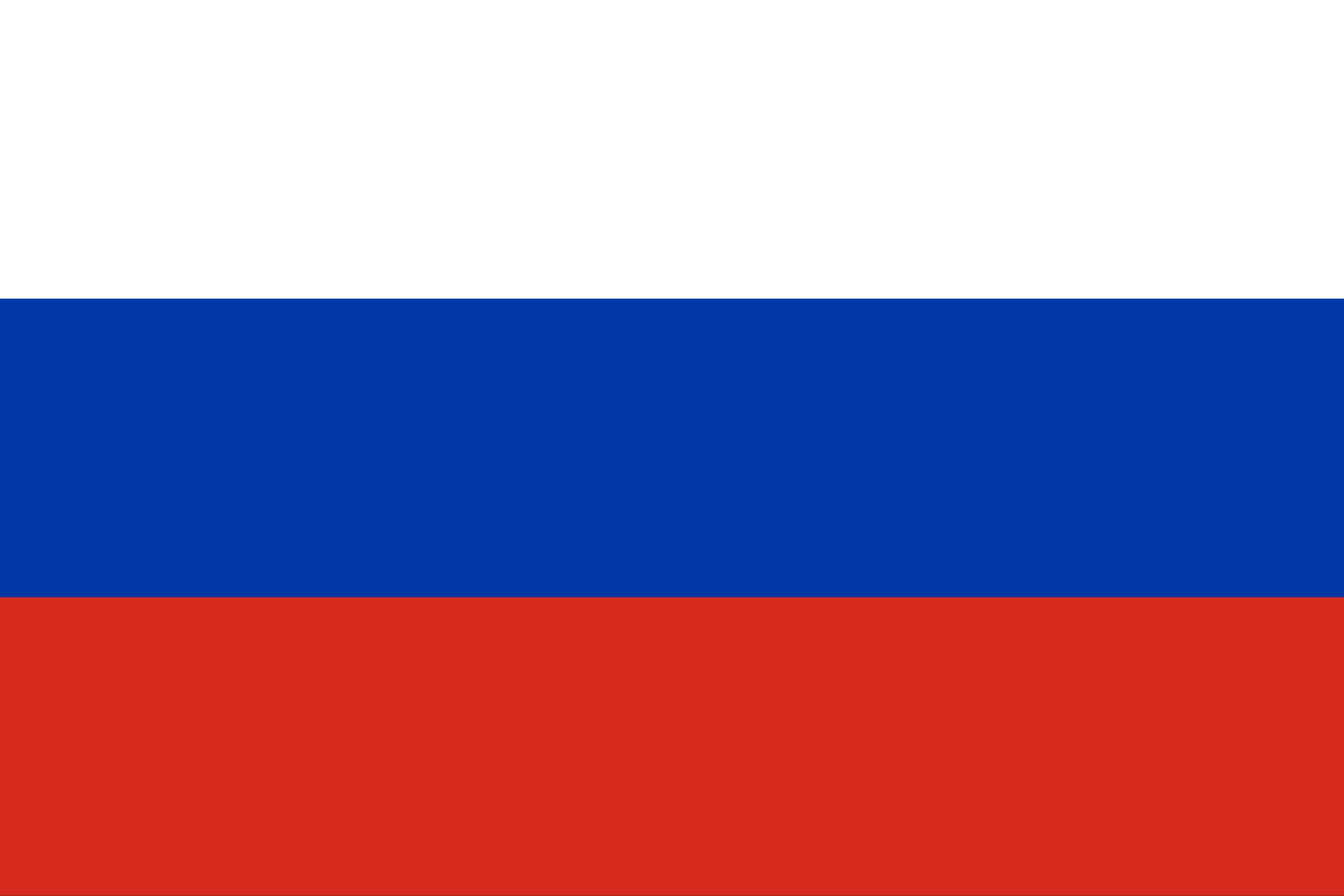

Russia
Russia has a land area of 17,098,200 square kilometers, spanning the Eurasian continent, with a maximum length of 9,000 kilometers from east to west and a maximum width of 4,000 kilometers from north to south. It is the country with the largest territory in the world. Russia's national border is 60,933 kilometers long, of which the coastline is 38,807 kilometers long, bordering 12 seas in the Atlantic Ocean, the Arctic Ocean, and the Pacific Ocean; the land border is 14,509 kilometers long, bordering 14 countries, with China and North Korea in the south and southeast, Kazakhstan, Mongolia, Georgia, and Azerbaijan in the south, Ukraine in the southwest, and Finland, Belarus, Estonia, Latvia, Lithuania, and Norway in the west. Kaliningrad Oblast is adjacent to Poland and Lithuania. It faces Japan and the United States across the sea to the east. 36% of its territory is within the Arctic Circle. Russia spans 11 time zones. The easternmost Ratmanov Island in the Bering Strait, the Anadyr River and the Kamchatka Peninsula are located in the Eastern Zone 12, and the westernmost Kaliningrad is located in the Eastern Zone 2. Moscow local time is 5 hours later than Beijing time. There is no daylight saving time. Russia is very rich in natural resources such as mineral resources, forest resources, water conservancy and fisheries, with many types, large reserves and a high degree of self-sufficiency. Russian is the main language and the most commonly used language for ethnic exchanges among people of all ethnic groups in Russia. Russian is the official language in Russia and also serves as an international communication language. In Russia, nearly 90% of "non-Russian" residents are proficient in Russian. The Russian Orthodox Church is the most widely spread Christian with the largest number of believers, about 50 million. The second is Muslims, mainly Sunnis. Orthodox theology is mainly composed of Greek Byzantine theology and Russian Orthodox theology.
(1) Trade management regulations: All enterprises registered in Russia have the right to engage in foreign economic activities, including intermediary business. After joining the World Trade Organization, Russia adjusted its tariffs and foreign trade policies. At present, except for some commodities subject to licenses, quotas and other restrictions, most commodities have been liberalized.
[Import management] Russia's import trade management regulations mainly include:
(1) Quota management. Import quota management is implemented for edible alcohol, vodka, high explosives, explosives, explosive equipment, fireworks products, raw sugar, meat, some dairy products and grain. The allocation of import quotas is mainly carried out through bidding and auction. From January 1, 2020, Russia will no longer implement quota management on pork imports, but will instead impose a unified tariff of 25%.
(2) License management. The import of special commodities such as chemical pesticides, industrial waste and code-breaking equipment, weapons and ammunition, nuclear materials, radioactive raw materials, precious metals, gemstones, anesthetics, tranquilizers, dual-use materials and technologies, hazardous wastes, wild animals, some wild herbs, medicines, and individual raw materials and equipment that can be used to manufacture weapons and equipment, which need to be imported according to special procedures stipulated by the Russian President and the government, and technology and scientific and technological information, etc., is subject to licensing management.
(3) Product identification and certification. The sale of imported goods without Russian descriptions is prohibited in Russia. The sale of alcoholic products, audio-visual products and computer equipment without anti-counterfeiting marks and statistical information strips is prohibited; chemical and biological agents, radioactive substances, production waste and some products imported into Russia for the first time, especially food, must be registered with the state before import; imported products for industrial, agricultural and civil construction, etc. must have sanitary and epidemic prevention identification; compulsory certification is implemented for some imported products such as animals and plants and their products, food, alcoholic and non-alcoholic beverages, textile raw materials and their products, machinery and equipment, and audio-visual equipment. In May 2022, the Russian Ministry of Industry and Trade issued Ministerial Decree No. 1532, approving a list of goods allowed to be parallel imported into Russia, including chemicals, electromechanical products, musical instruments and auto parts.
(4) Electronic labeling system. Russia is gradually implementing the electronic labeling system for different categories of goods produced and imported locally. At present, the electronic labeling of medicines, light industrial products, fur products, automobile tires, photographic equipment and other categories of goods has been completed, and the mandatory electronic labeling of tobacco, shoes, perfume, beer, nutritional supplements and other goods is being carried out. From June 1, 2021, the mandatory labeling of dairy products will be gradually implemented. In March 2022, Russian Prime Minister Mishustin signed an order to postpone the start time of the mandatory labeling phase of dairy products for farms and agricultural cooperatives to December 1, 2023. From March 1, 2023, the mandatory electronic labeling of bicycles will be gradually implemented.
(2) Customs management rules and regulations: Russian customs management is implemented by the Russian Federal Customs Service in accordance with the Customs Code of the Eurasian Economic Union, the Customs Regulation Law of the Russian Federation, the Customs Tariff Law of the Russian Federation and other relevant laws and regulations. The Customs Code of the Eurasian Economic Union unifies the customs management of the member states of the union, including Russia, such as the implementation of the "electronic declaration", "single window" and "authorized operator" system. [Tariff rate] For details on the import tariff rates of local major products, please refer to the relevant link on the official website of the Eurasian Economic Commission. Website: www.eurasiancommission.org/ru/act/trade/catr/ett/Documents/ru.85_2022_08.05.2022.pdf
(3) Foreign investment preferential policies:
[Investment incentive policies] The 2019 amendment to the Russian Federation Industrial Policy Law stipulates a new version of the special investment contract, cancels the minimum investment requirement, and emphasizes the technological attributes of the investment project, that is, encourages investors to develop or introduce advanced technologies in Russia and produce high-tech products with international competitiveness based on such technologies. The governments of the Russian Federation and the Russian federal subjects and local self-government agencies where the investment projects are located will ensure the stability of the business environment for investors and provide support measures in accordance with the new version of the special investment contract signed with investors.
[Russia's policy service system for attracting foreign investment] Russia has established a relatively complete policy service system for attracting foreign investment, including simplifying the procedures for foreign investment to enter industries such as food, medical care, banking and underground resource use by modifying relevant clauses. In addition, Russia has established a foreign investment complaint mechanism to improve the investment environment and increase investment attractiveness.
(1) Simplify the company registration procedure. By 2018, the time required for company registration will be shortened from the previous 30 working days to 5 working days.
(2) Approval of the "Law on Public-Private Partnership". In July 2015, Russia approved the "Law on Public-Private Partnership", allowing the state and local governments to sign various forms of contracts with private investors, laying a legal foundation for private capital and foreign capital to enter Russia's monopoly industries, public services, and participate in government procurement.
(4) Regulations on investment industries:
[Industries and laws and regulations that prohibit, restrict and encourage foreign investment]
(1) Prohibited industries. Foreign investment in the gambling industry and life insurance industry is prohibited; foreign banks are prohibited from setting up branches; foreign insurance companies are prohibited from engaging in dangerous industrial facility insurance, property insurance of powerful departments and personal insurance. Russia has not opened up its railway passenger and freight markets to foreign investment. Foreign investors are not allowed to set up joint ventures in these fields and provide services such as loading and unloading, container yards, ship agency, customs clearance, etc. Foreign investors are not allowed to engage in the repair and maintenance of railway transportation equipment. The oil and gas pipeline and power grid construction and operation fields and highway operation fields are not open to foreign investment.
(2) Restricted industries. Russia's "Strategic Fields Foreign Investment Law" restricts foreign investment in strategic industries, and there are 50 main restrictions on business activities, including: nuclear raw material production, construction and operation of nuclear reactor projects, disposal, transportation, storage and burial of nuclear devices, radiation sources, nuclear materials, radioactive substances and nuclear waste; research and development, production, sales, repair and destruction of weapons, military equipment and ammunition, as well as research, production and sales of special metals and alloys necessary for the production of weapons and military equipment; research and maintenance of aerospace facilities and aircraft; development and creation of aviation transportation automation information systems, databases and related information and telecommunications networks; research and development of cryptographic encryption equipment; services of some natural monopoly sectors (except public telecommunications, public postal services, heating and power supply, and port services); development of underground resource blocks at the federal level; underwater resources; broadcasting media covering half of Russia's territory, newspapers and publishing companies with large circulation; operators of electronic procurement platforms; comprehensive implementation of fuel and energy vulnerability assessment activities and protection from illegal interference. In addition, Russian law stipulates that the Central Bank of Russia has the right to make additional requirements on foreign credit institutions in terms of business and minimum registered capital; foreign investors cannot participate in the management of shareholders' meetings and boards of directors in the aviation industry.
(3) Encouraged industries. The areas where the Russian government encourages foreign direct investment are mostly traditional industries, such as oil, natural gas, coal, wood processing, building materials, construction, transportation and communication equipment, food processing, textiles, and automobile manufacturing.

Customized overseas services for Chinese enterprises
Helping Chinese companies to expand overseas with less worries
